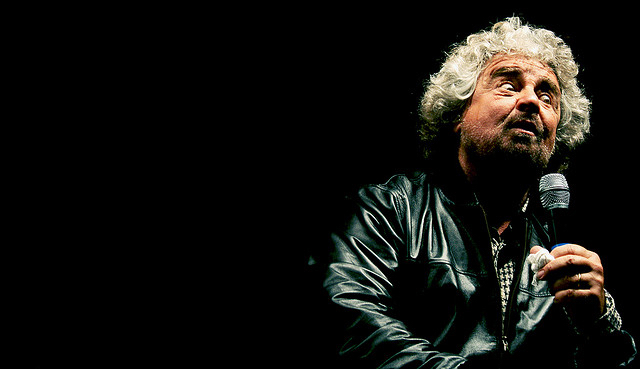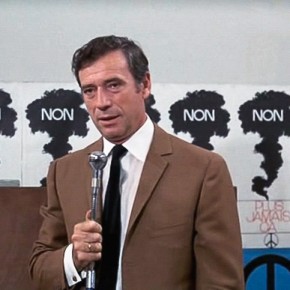The politic of Fascism revolves wholly about the concept of the national State; and accordingly it has points of contact with nationalist doctrines, along with distinctions from the latter which it is important to bear in mind.
Both Fascism and nationalism regard the State as the foundation of all rights and the source of all values in the individuals composing it. For the one as for the other the State is not a consequence—it is a principle. But in the case of nationalism, the relation which individualistic liberalism, and for that matter socialism also, assumed between individual and State is inverted. Since the State is a principle, the individual becomes a consequence—he is something which finds an antecedent in the State: the State limits him and determines his manner of existence, restricting his freedom, binding him to a piece of ground whereon he was born, whereon he must live and will die. In the case of Fascism, State and individual are one and the same things, or rather, they are inseparable terms of a necessary synthesis.
Nationalism, in fact, founds the State on the concept of nation, the nation being an entity which transcends the will and the life of the individual because it is conceived as objectively existing apart from the consciousness of individuals, existing even if the individual does nothing to bring it into being. For the nationalist, the nation exists not by virtue of the citizen’s will, but as datum, a fact, of nature.
For Fascism, on the contrary, the State is a wholly spiritual creation. It is a national State, because, from the Fascist point of view, the nation itself is a creation of the mind and is not a material presupposition, is not a datum of nature. The nation, says the Fascist, is never really made; neither, therefore, can the State attain an absolute form, since it is merely the nation in the latter’s concrete, political manifestation. For the Fascist, the State is always in fieri. It is in our hands, wholly; whence our very serious responsibility towards it.
But this State of the Fascists which is created by the consciousness and the will of the citizen, and is not a force descending on the citizen from above or from without, cannot have toward the mass of the population the relationship which was presumed by nationalism.

Nationalism identified State with Nation, and made of the nation an entity preëxisting, which needed not to be created but merely to be recognized or known. The nationalists, therefore, required a ruling class of an intellectual character, which was conscious of the nation and could understand, appreciate and exalt it. The authority of the State, furthermore, was not a product but a presupposition. It could not depend on the people—rather the people depended on the State and on the State’s authority as the source of the life which they lived and apart from which they could not live. The nationalistic State was, therefore, an aristocratic State, enforcing itself upon the masses through the power conferred upon it by its origins.
The Fascist State, on the contrary, is a people’s state, and, as such, the democratic State par excellence. The relationship between State and citizen (not this or that citizen, but all citizens) is accordingly so intimate that the State exists only as, and in so far as, the citizen causes it to exist. Its formation therefore is the formation of a consciousness of it in individuals, in the masses. Hence the need of the Party, and of all the instruments of propaganda and education which Fascism uses to make the thought and will of the Duce the thought and will of the masses. Hence the enormous task which Fascism sets itself in trying to bring the whole mass of the people, beginning with the little children, inside the fold of the Party.

On the popular character of the Fascist State likewise depends its greatest social and constitutional reform—the foundation of the Corporations of Syndicates. In this reform Fascism took over from syndicalism the notion of the moral and educational function of the syndicate. But the Corporations of Syndicates were necessary in order to reduce the syndicates to State discipline and make them an expression of the State’s organism from within. The Corporation of Syndicates are a device through which the Fascist State goes looking for the individual in order to create itself through the individual’s will. But the individual it seeks is not the abstract political individual whom the old liberalism took for granted. He is the only individual who can ever be found, the individual who exists as a specialized productive force, and who, by the fact of his specialization, is brought to unite with other individuals of his same category and comes to belong with them to the one great economic unit which is none other than the nation.
This great reform is already well under way. Toward it nationalism, syndicalism, and even liberalism itself, were already tending in the past. For even liberalism was beginning to criticize the older forms of political representation, seeking some system of organic representation which would correspond to the structural reality of the State.
The Fascist conception of liberty merits passing notice. The Duce of Fascism once chose to discuss the theme of “Force or consent?”; and he concluded that the two terms are inseparable, that the one implies the other and cannot exist apart from the other; that, in other words, the authority of the State and the freedom of the citizen constitute a continuous circle wherein authority presupposes liberty and liberty authority. For freedom can exist only within the State, and the State means authority. But the State is not an entity hovering in the air over the heads of its citizens. It is one with the personality of the citizen. Fascism, indeed, envisages the contrast not as between liberty and authority, but as between a true, a concrete liberty which exists, and an abstract, illusory liberty which cannot exist.
Liberalism broke the circle above referred to, setting the individual against the State and liberty against authority. What the liberal desired was liberty as against the State, a liberty which was a limitation of the State; though the liberal had to resign himself, as the lesser of the evils, to a State which was a limitation on liberty. The absurdities inherent in the liberal concept of freedom were apparent to liberals themselves early in the Nineteenth Century. It is no merit of Fascism to have again indicated them. Fascism has its own solution of the paradox of liberty and authority. The authority of the State is absolute. It does not compromise, it does not bargain, it does not surrender any portion of its field to other moral or religious principles which may interfere with the individual conscience. But on the other hand, the State becomes a reality only in the consciousness of its individuals. And the Fascist corporative State supplies a representative system more sincere and more in touch with realities than any other previously devised and is therefore freer than the old liberal State.
Excerpted from The Philosophic Basis of Fascism, by Giovanni Gentile (1928. Photographs courtesy of the European Parliament, blue-news.org, and Sara Fasullo. Published under a Creative Commons license.





